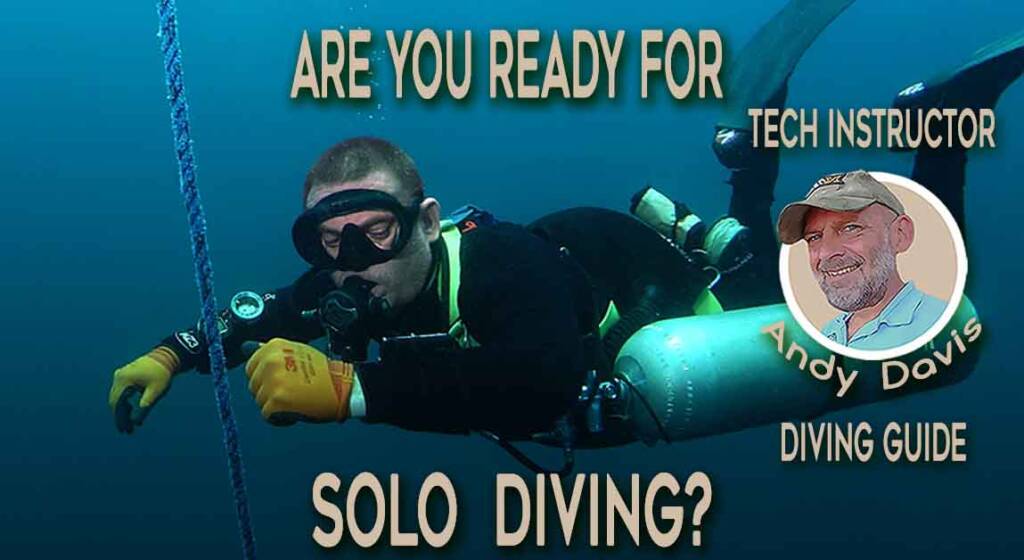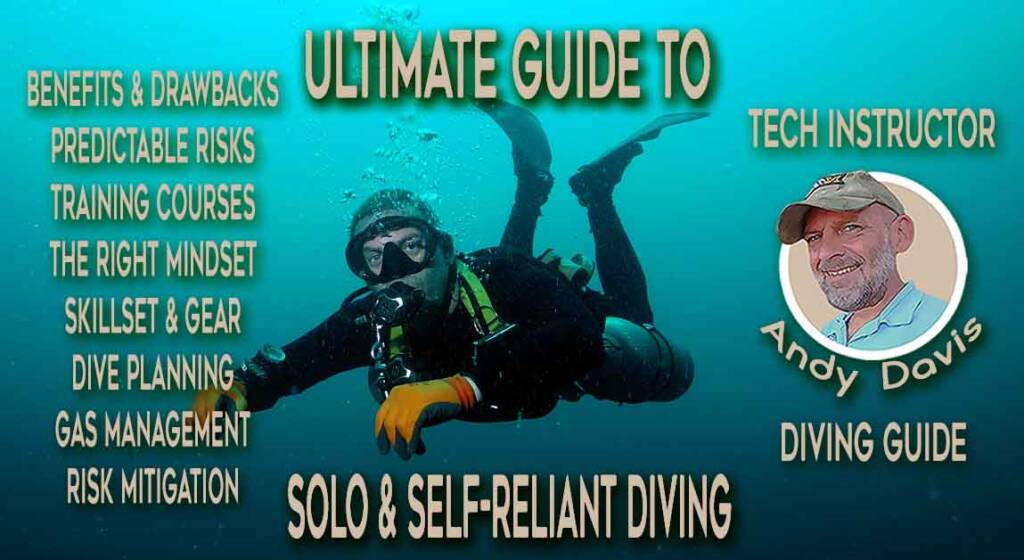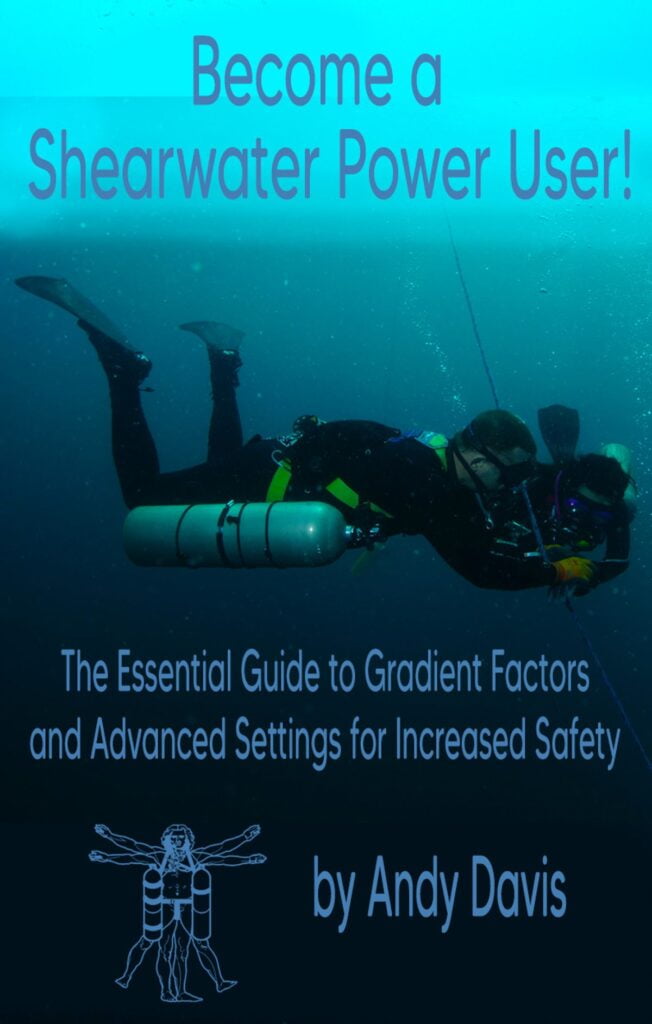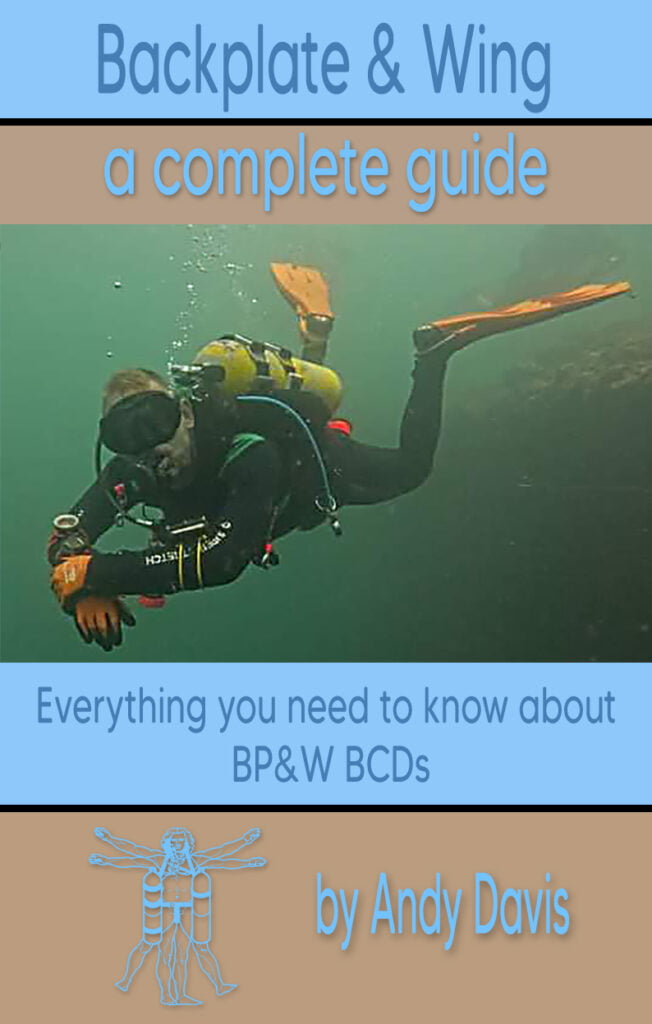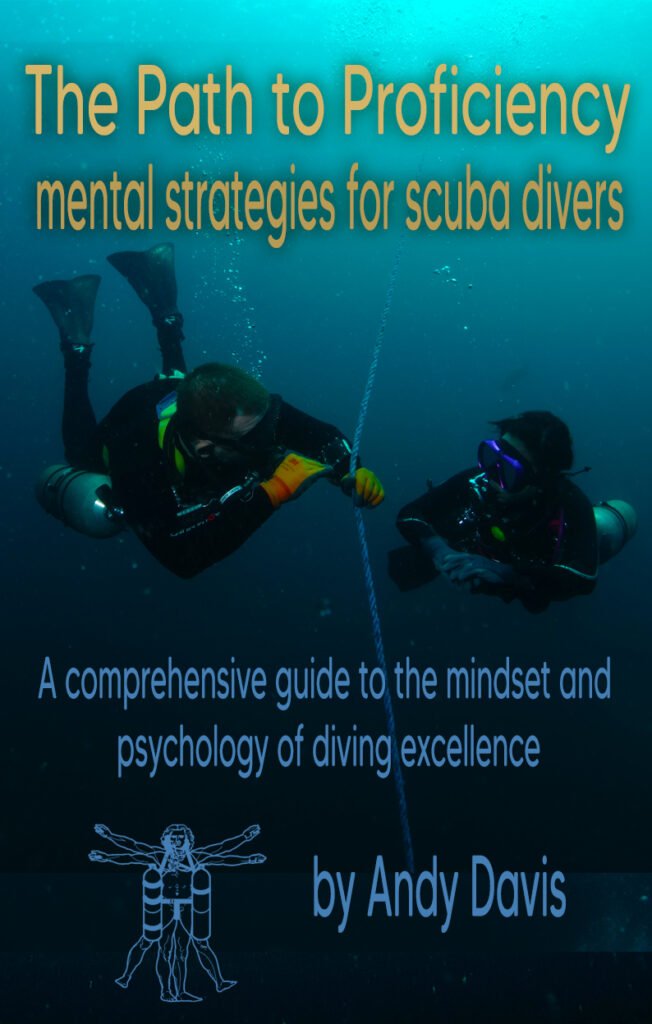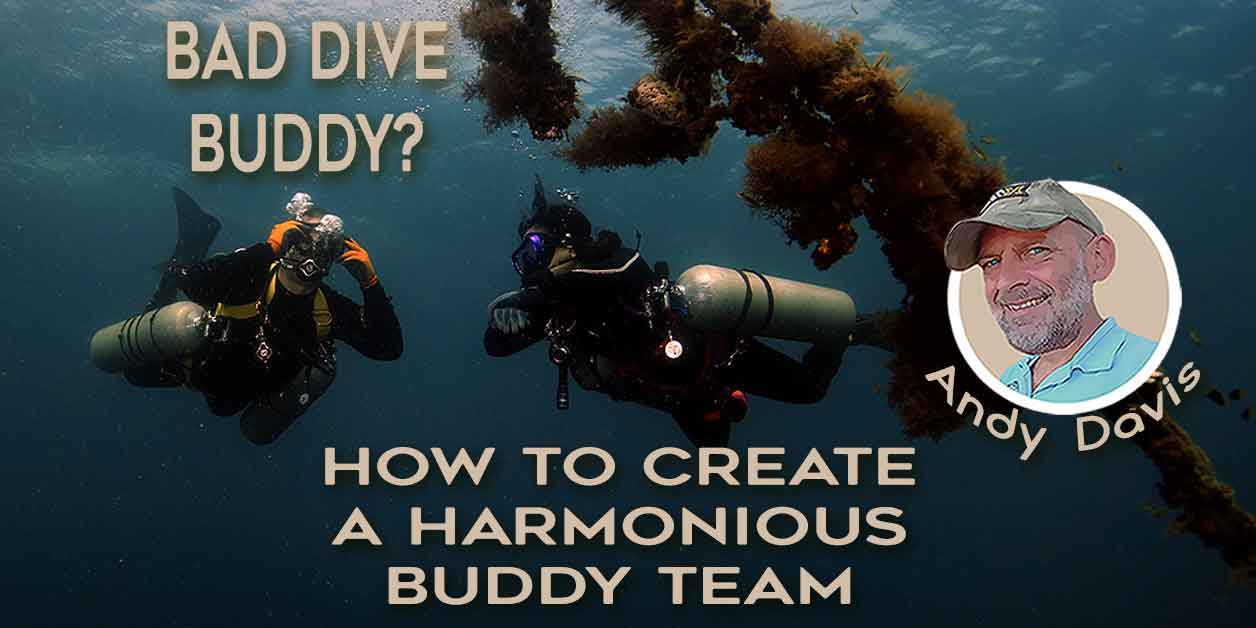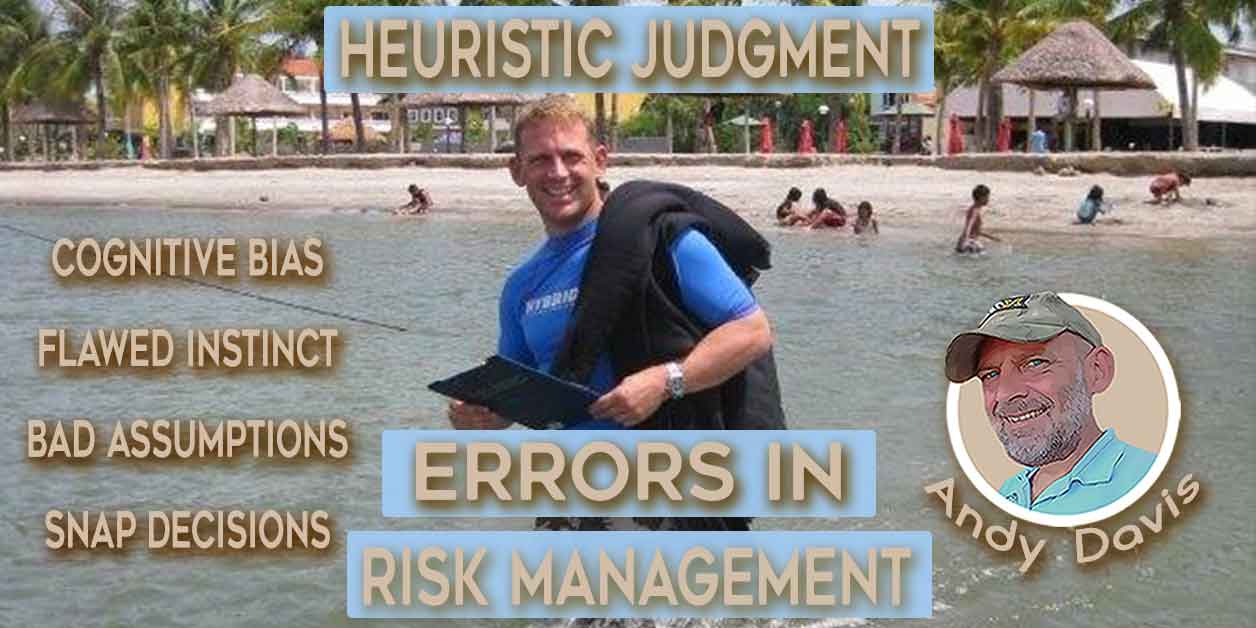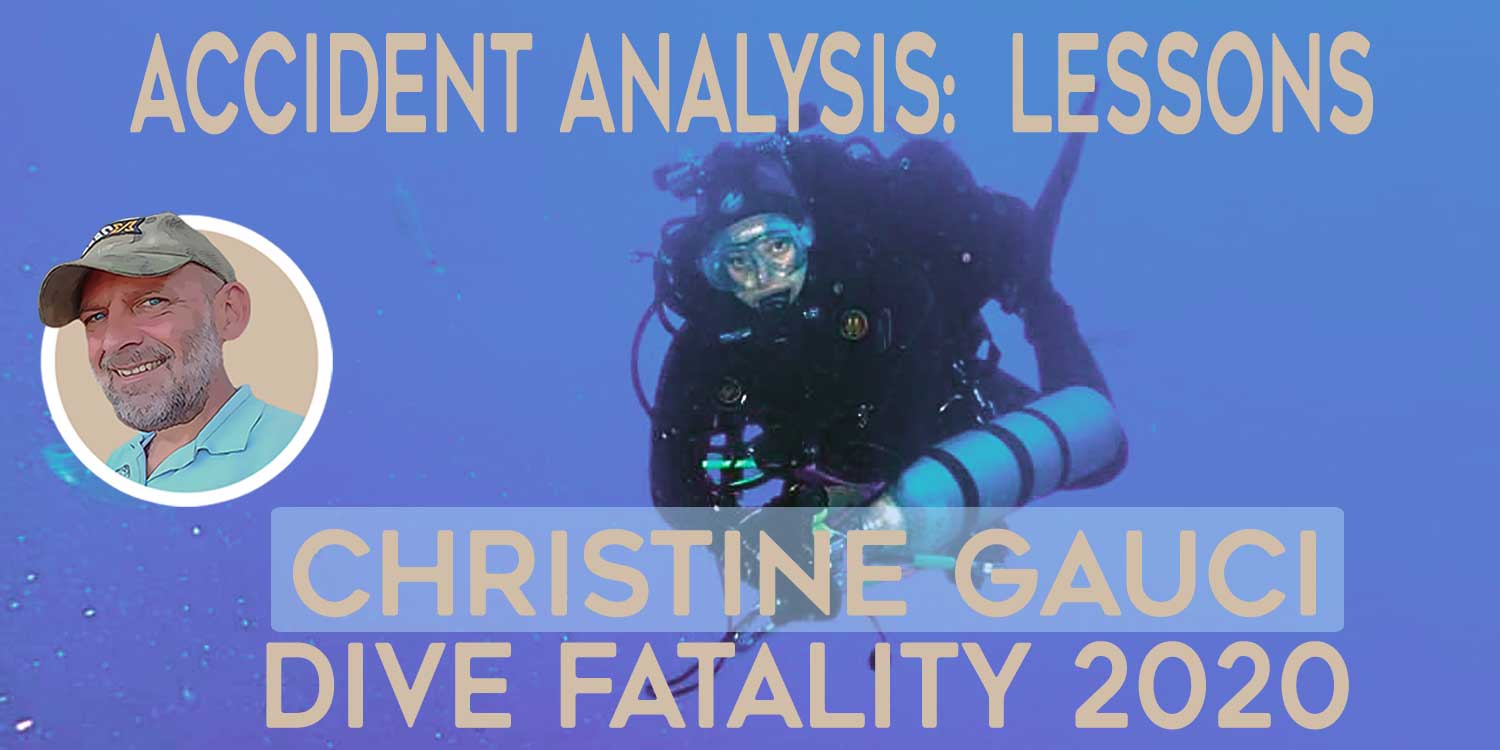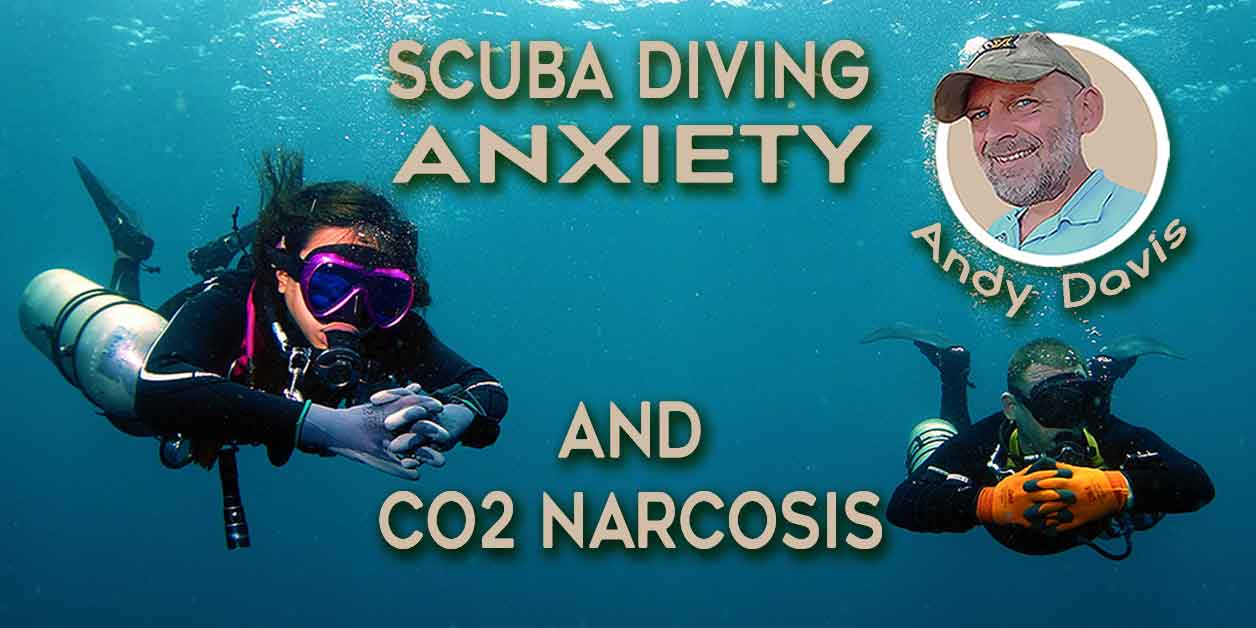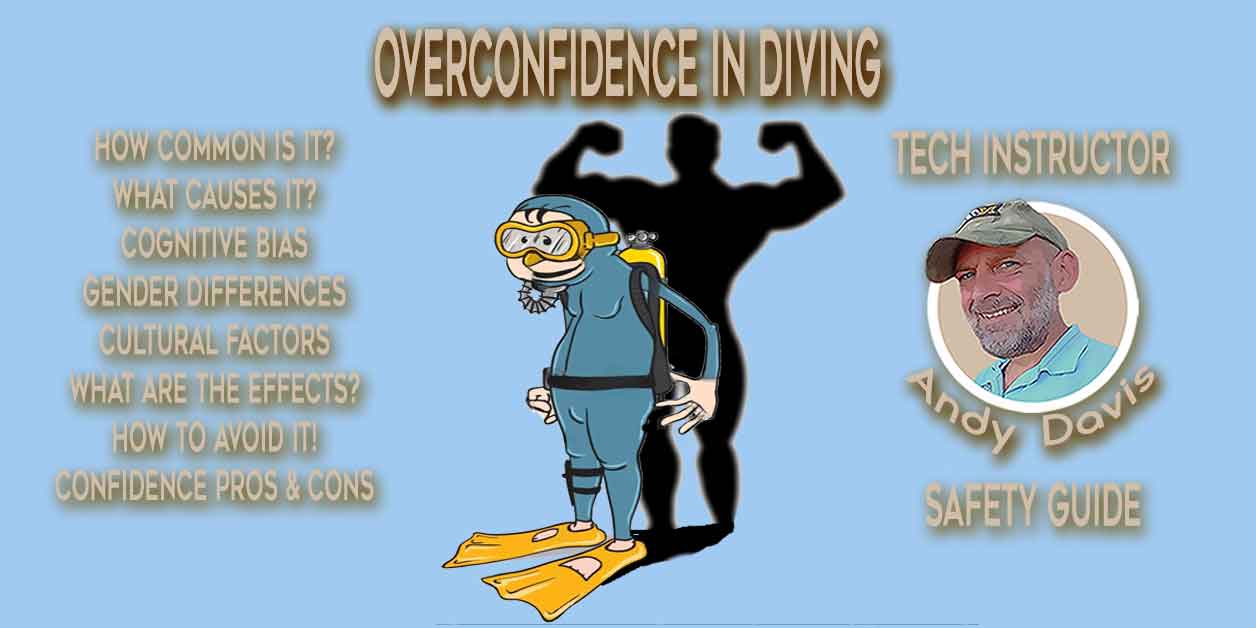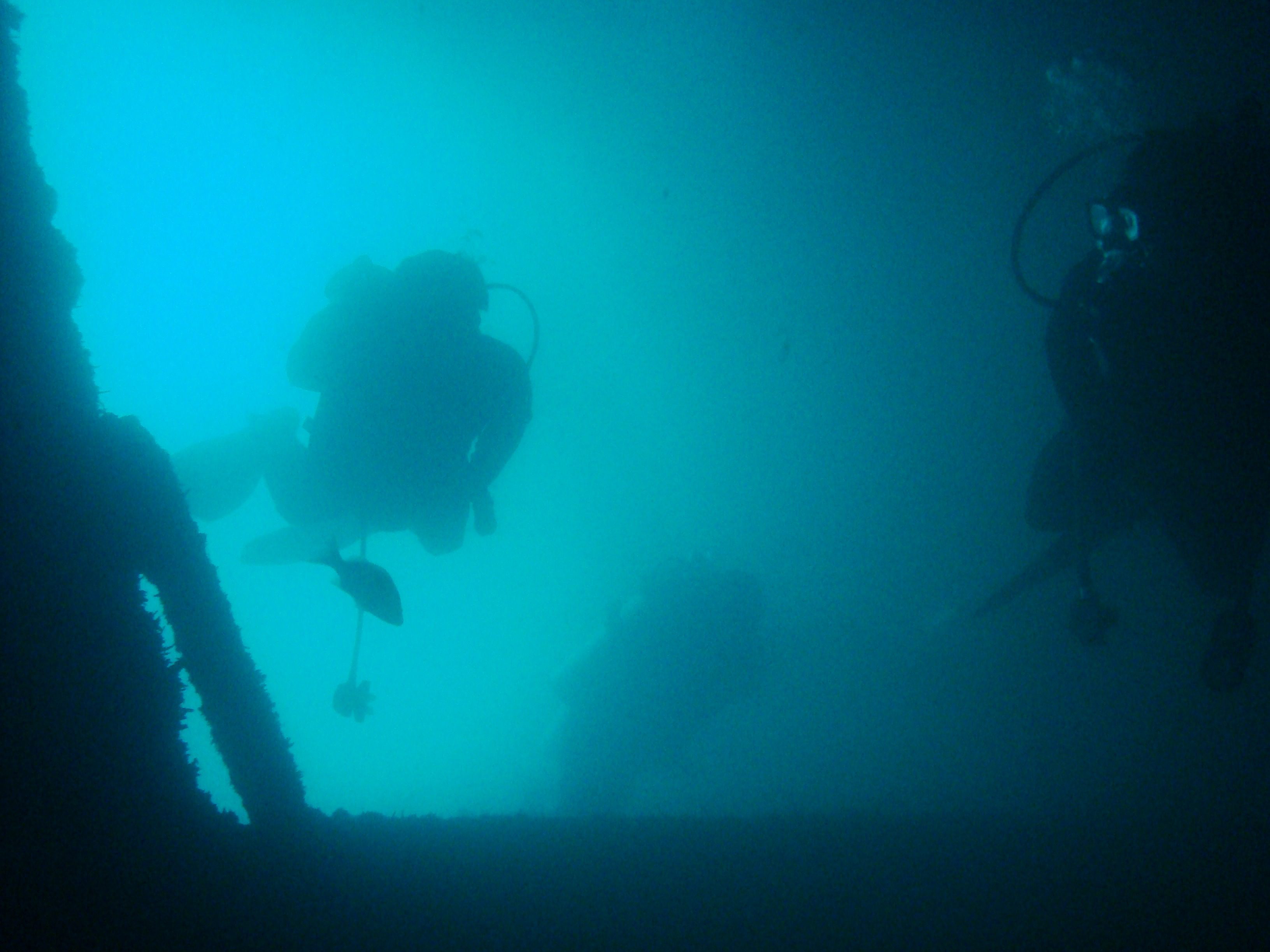Is Solo Diving Safe?
Solo diving, as the name suggests, refers to scuba diving without the support of a buddy or a team. Many divers ask the question “is solo diving safe?”. The real answer is: it depends. Solo diving safely requires a high level of skills, additional equipment, comprehensive planning, expanded diving knowledge, and psychological resilience.
While some divers may argue that solo diving can be safe with proper precautions, others believe that the risks outweigh the benefits.
In this article, I will explore the safety considerations of solo diving; discussing the real-world factors that determine whether it is a suitable choice for divers.
My Personal Experience Of Solo Diving
I first started solo diving twenty years ago; after I had been certified as a technical diver. At that time, dedicated solo diver courses did not exist. However, technical-level qualifications were routinely accepted to allow solo diving. In fact, most solo and self-reliant course syllubus and materials are taken directly from entry-level technical diving courses.
I conducted recreational solo dives with the same equipment, protocols, preparation, and planning with which I would approach a technical dive:
- I planned my gas and dive profile in exacting detail
- I had contingency plans for any foreseeable issue
- I had full gas redundancy (backmount isolated doubles)
- I had redundant dive instruments, mask, and DSMBs
Over time, and as my experience developed over thousands of dives, I began conducting some technical-level solo dives. These included challenging wreck penetrations and decompression dives; including some multi-hour 70-90m dives conducted at night.
In hindsight, some of those dives were unnecessarily risky; although I felt safe and confident to conduct them at the time. As my experience continued to develop, I’ve learned to be a lot more risk-averse.
I think these are key takeaways from the experience I have acquired over the years:
- Don’t succumb to ambition, impatience or over-zealousness
- There is no need to take excessive risks
- Don’t rely on a self-assessment of your proficiency
- Certification cards won’t save your life
- You are only as good as your worst performance
- You don’t know if you can handle something until you’ve dealt with it for real
- Nobody thinks that imprudent divers are brave
The Importance of Solo Diving Risk Mitigation
Solo diving heavily relies on effective risk mitigation strategies since there is no direct support underwater. This necessitates a combination of advanced skills, thorough equipment preparation, meticulous planning, extensive knowledge, and psychological resilience.
Unlike mainstream recreational diving training, solo diving requires divers to go beyond the basic skills taught in traditional courses.
Accumulated Experience Doesn’t Equate to Proficiency
It’s important to note that experience alone is not an accurate predictor of solo diving competency. Simply accumulating logged dives does not necessarily indicate a development in proficiency, knowledge, or mindset.
In fact, without routine assessment, validation, and corrective intervention, bad habits, complacency, and overconfidence can amplify over time. Therefore, it is crucial for divers to continuously assess and improve their skills to ensure their safety underwater.
Solo Diving: Risk Severity and Consequence
The risks associated with solo diving are magnified due to the absence of direct support. However, with proper compensation measures, solo diving can achieve a comparable level of safety to buddy-system diving, except in cases of sudden and debilitating medical conditions.
By implementing appropriate risk management strategies, divers can mitigate potential dangers and ensure their safety if they do not have buddy support.
The Perils of Overestimating Proficiency
One significant danger of solo diving is the tendency for divers to overestimate their skills and abilities. This danger can be exacerbated by low-quality training that fails to teach divers their performance limits.
Instead of demonstrating fallibility, such training may boost confidence, leading to a false sense of competence. It is crucial to undergo high-quality training that realistically simulates worst-case scenarios and fosters self-awareness.
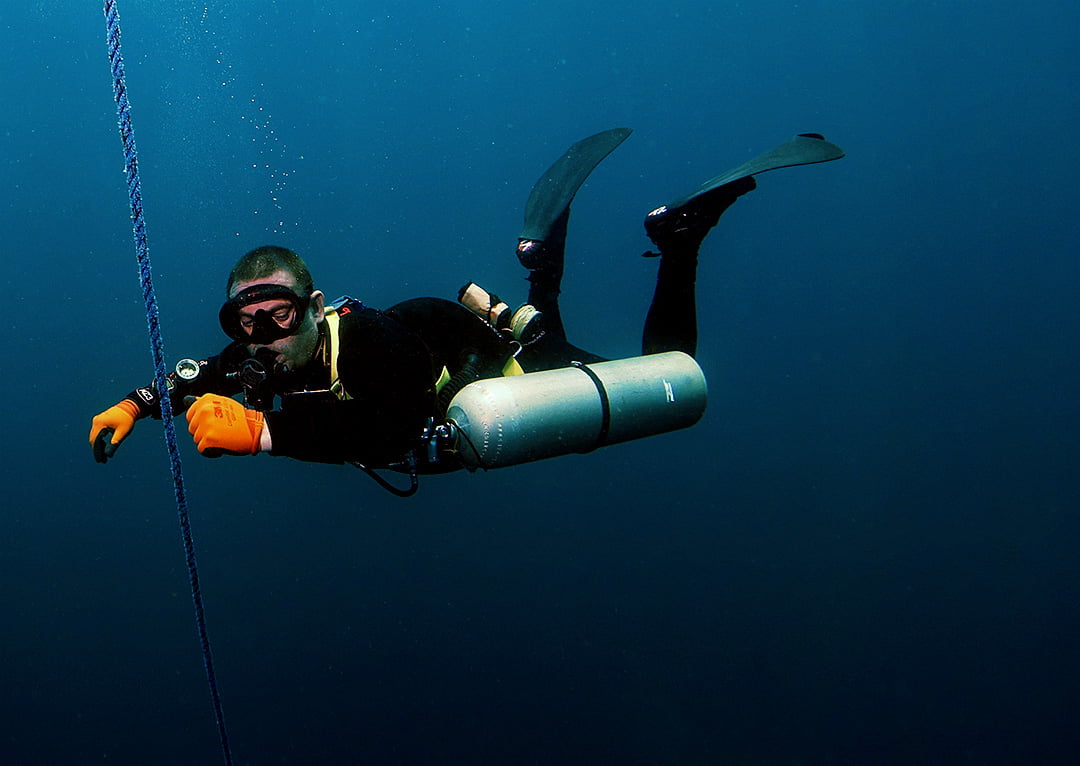
Evaluating Solo Diver Training
While solo (and self-reliant) diver courses have become mainstream over the past two decades, there is a need to ensure they deliver adequate results.
Many courses fall short when instructors approach the training as just another “tick-list weekend specialty course.”
To ensure the diver’s proficiency, solo diver training should be an assessment process, with the instructor acting as a gatekeeper who issues solo certification only when the diver has reasonably proven their abilities.
The Importance of Competency and Self-Awareness For Solo Diving
Enrolling in solo diver training should only be considered when a diver is already accomplished and highly competent. It is unrealistic to expect that a couple of days of training can resolve fundamental deficits in skills, stress resilience, and self-awareness.
Overcoming ingrained bad habits, inappropriate mindsets, and overestimation of one’s abilities takes time and dedication.
Individuals lacking self-awareness may find these barriers insurmountable, and unfortunately, they are often the ones most likely to assume they are capable of diving alone.
Solo Diving vs. Self-Sufficient Diving
Self-sufficient (or self-reliant) diving aims to enhance your safety within a buddy team, making it a valuable course for all divers. The training and assessment standards for self-sufficient diving do not need to be as stringent as those for solo diving. The objective is to provide divers with improved skills and knowledge so that their safety is not entirely dependent on their buddy’s diving competence.
In contrast, solo diving means being completely on your own. In the event of a problem, it is solely your responsibility to solve it. A solo diver has to solve every problem on their own; and their survival is dependent on that ability whenever something goes wrong.
Solo and self-reliant diver courses typically include the practice of various techniques, such as:
- Ascending without a mask
- Gas management calculations
- Improved navigation techniques
- Using a delayed surface marker buoy (DSMB)
- Entanglement drills
- Contingency planning for emergencies
- Using a redundant gas supply
Gas Management For Scuba Divers
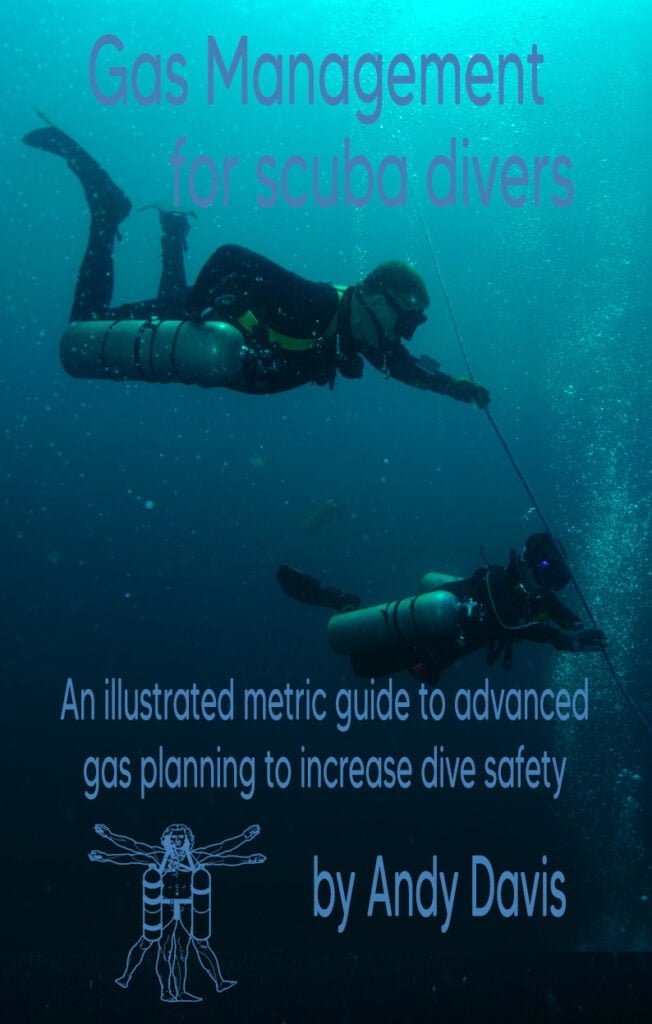
The comprehensive, illustrated, metric guide to advanced gas planning and management for safer scuba diving. Only $9!
60 Pages. Printable PDF format. Fully Illustrated.
Why Solo Dive?
The thrill of diving alone is not the main motivation for solo diving. Most solo diving is a matter of convenience; either a suitable buddy is not available, or the diver has very specific diving aims that don’t favor a buddy team approach.
The other motivation for solo diving training is a personal challenge. Specifically, learning how to handle problems independently, develop stress resilience, and improve one’s accomplishment as a diver. Obviously, those benefits only exist if the solo diving training is high-quality.
This can make divers more confident and self-sufficient, whether they are diving with or without a buddy.
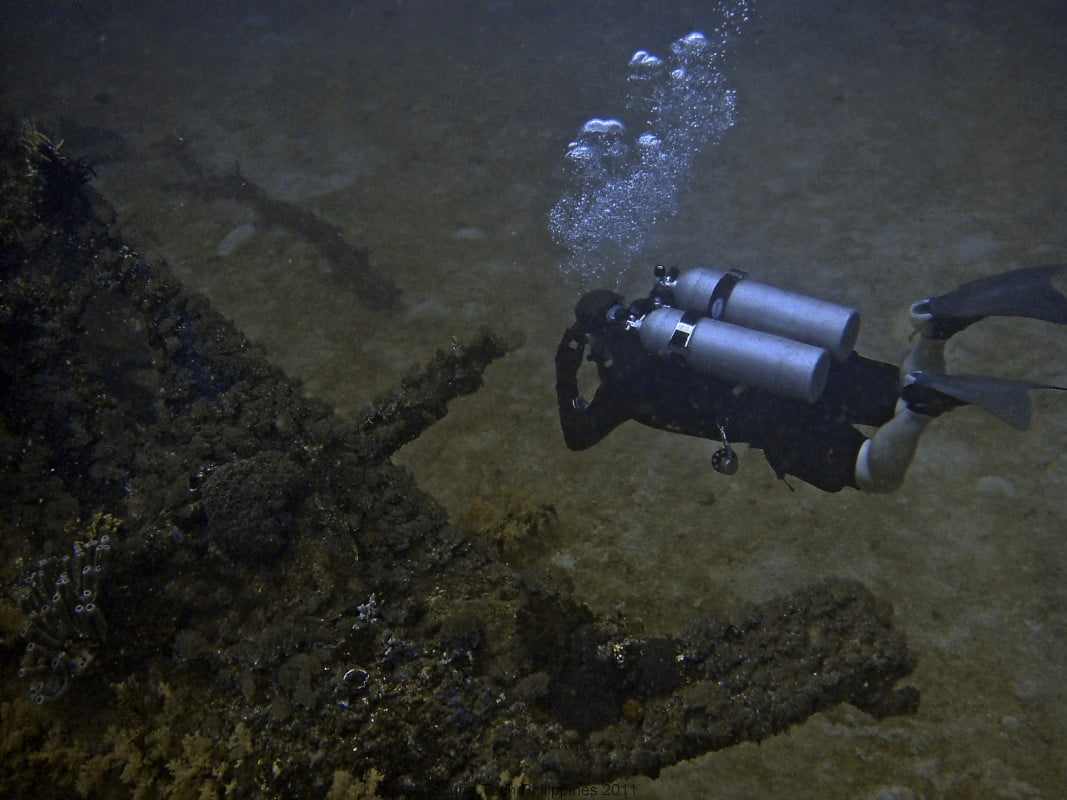
Solo Diving Equipment
When it comes to solo diving, there are specific equipment considerations to ensure safety and self-sufficiency underwater. The necessary equipment for solo diving typically includes:
- Scuba Diving Essentials: Standard scuba diving equipment is essential for solo diving. This includes a mask, fins, BCD (Buoyancy Control Device), regulator, alternate air source, diving computer, and exposure protection. Equipment should be streamlined and configured with attention-to-detail to minimize task loading and entanglement risks.
- Redundant Gas Supply: Carrying redundant gas supply is a crucial safety measure for solo divers. This can be achieved by using a sidemount or backmount twin-cylinder setup with an isolation manifold or a scuba cylinder with a pony bottle setup.
- Cutting Devices: It’s important to have multiple cutting devices, such as a knife, scissors, or a line cutter, to handle entanglement situations or to cut fishing lines if needed.
- Delayed Surface Marker Buoy (DSMB) and Spool: Carrying a delayed surface marker buoy (DSMB) allows solo divers to signal their presence to boats or surface support teams. The DSMB can be deployed during safety stops or in case of an emergency.
- Emergency Signalling Devices: Solo divers carry at least one, and ideally more, emergency signaling devices. This allows them to attract help if they are in distress when on the surface.
- Contingency Plans and Equipment: Solo divers should always have contingency plans for foreseeable worst-case scenarios, and carry appropriate equipment and resources for those plans to work. This can include an additional gas, either slung or mounted, for use in an emergency or when exceeding planned dive limits.
- Safety Gear: Solo diving requires additional safety gear to handle emergencies independently. This can include a spare mask, a personal locator beacon, a dive light/s, and a backup dive computer.
Legal Considerations For Solo Diving
While obtaining a Solo Diver certification demonstrates a certain level of competence, it does not guarantee that you will be allowed to scuba dive alone in all locations. Laws and regulations regarding solo diving vary among countries and dive operators.
It is crucial to familiarize yourself with the specific rules of the diving destination and adhere to them to ensure a safe and legal diving experience.
Likewise, you must respect the operating policies of dive centers, boats, and resorts. They have to protect themselves legally; and solo divers can be a significant liability risk. A solo diving certification is not a ‘license’ that entitles you to dive alone.
Is Solo Diving Safe For You?
In conclusion, the safety of solo diving depends on the individual diver’s attitude and their dedication to undergo a thorough assessment of their proficiency.
Solo diving requires advanced skills, proper equipment, meticulous planning, and psychological resilience. The answer to “Is Solo Diving Safe?” is dependent on how diligently an individual diver attains those prerequisites.
By continuously assessing and improving their abilities, divers can mitigate the risks associated with solo diving. However, it is essential to acknowledge the potential dangers and make an informed decision based on one’s competence and self-awareness.
My Other Articles on Solo Diving
About The Author

Andy Davis is a RAID, PADI TecRec, ANDI, BSAC, and SSI-qualified independent technical diving instructor who specializes in teaching sidemount, trimix, and advanced wreck diving courses.
Currently residing in Subic Bay, Philippines; he has amassed more than 10,000 open-circuit and CCR dives over three decades of challenging diving across the globe.
Andy has published numerous diving magazine articles and designed advanced certification courses for several dive training agencies, He regularly tests and reviews new dive gear for scuba equipment manufacturers. Andy is currently writing a series of advanced diving books and creating a range of tech diving clothing and accessories.
Prior to becoming a professional technical diving educator in 2006, Andy was a commissioned officer in the Royal Air Force and has served in Iraq, Afghanistan, Belize, and Cyprus.
In 2023, Andy was named in the “Who’s Who of Sidemount” list by GUE InDepth Magazine.
Purchase my exclusive diving ebooks!
Originally posted 2023-06-25 14:01:27.

